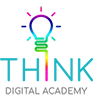Our detailed manual, "Mastering Online Education: 50 Essential Strategies," is deliberately designed to address all facets of e-learning. The guide is organised into four key sections, offering a comprehensive and systematic method for effective online education:
1. Study environment and organisation: Building a conducive study space and staying organised are critical initial steps for effective online learning. This advice ensures your physical and virtual setups are primed for concentration and productivity, laying the groundwork for efficient study habits.
2. Educational methods and techniques: Adopting and tweaking robust educational techniques is crucial for leveraging the extensive online resources and mastering intricate topics. This part sheds light on tactics that boost comprehension, memory, and practical application of information.
3. Concentration and motivation: Succeeding in an online school requires significant self-discipline and enthusiasm, often without the structure provided by traditional classrooms. Strategies in this section aim to assist in maintaining focus, drive, and perseverance through your educational journey.
4. Interaction with digital content: Given the plethora of digital information, it's vital to interact with online materials thoughtfully and actively. Advice in this segment guides on maximizing the benefits of digital tools and resources for a more engaging educational experience.
Here's a breakdown of key strategies:
Study environment and organisation
1. Designate a study area: Setting aside a specific spot for studying can help establish a routine and mental readiness, leading to improved focus.
2. Declutter your study space: A clean workspace minimises distractions and enhances concentration, making for a more effective learning setting.
3. Invest in ergonomic furniture and adequate lighting: Comfort and proper lighting are essential to prevent discomfort and eye strain, facilitating longer and more productive study sessions.
4. Use time management Tools: Tools like calendars and planners help keep your learning on track, ensuring comprehensive coverage of topics.
5. Organise digital files: Properly managing digital documents by sorting and labelling saves time and eases study sessions, streamlining the learning process.
6. Explore online study platforms: Utilise platforms such as Think Digital Academy, who offer structured curricula and support, for a more accessible and credible education.
7. Participate in online study Communities: Joining study groups and online Forums fosters motivation and a shared learning experience, making education a collective endeavour.

Educational methods and techniques
1. Set goals and segment tasks: Outlining objectives and breaking them into smaller tasks can aid in focus and achievement of educational milestones.
2. Discover your learning style: Identifying whether you learn best through visual, auditory or kinaesthetic means can tailor your study methods for better results.
3. Use flashcards: Flashcards, coupled with spaced repetition, are effective for memorising key information.
4. Summarise and review online lessons: Recording notes from lessons allows for revisiting complex areas, aiding in clarification and reinforcement of concepts.
Concentration and motivation
1. Establish realistic study objectives: Achievable goals can keep you motivated and focused, providing clear academic direction.
2. Incorporate breaks: Short breaks are crucial for avoiding burnout and keeping your mind sharp, enhancing study effectiveness.
3. Implement a rewards system: Rewarding yourself for meeting goals can maintain motivation and make learning more enjoyable.
4. Limit distractions: A study environment free from interruptions is essential for focus, necessitating strategies to minimise potential distractions.
Interaction with digital content
1. Critically assess online materials: Evaluating the credibility of digital resources ensures you're learning from reliable sources.
2. Engage actively with lessons: Taking notes, summarising or paraphrasing during videos or lessons fosters deeper engagement with the content, improving understanding and retention.
3. Contribute to online discussions: Participating in forums such as the Forum provided to students on Think Digital Academy, encourages exploration of topics and provides clarification on challenging concepts.
Additional strategies
1. Seek assistance when necessary: Don't hesitate to reach out for help to clarify doubts and enhance understanding. The Think Digital Academy Student Success Coaches are ready and available during work hours to provide you with any assistance that you need.
2. Celebrate your progress: Acknowledging and celebrating your learning milestones keeps motivation levels high and reinforces a positive outlook on education.
3. Enjoy your online learning experience: Finding joy in your educational journey can prevent burnout and make learning more engaging
Our guide aims to simplify the online education process, offering actionable tips to improve your online schooling experience. By establishing an ideal study environment, employing effective learning techniques, maintaining focus and motivation and engaging actively with digital content, each strategy builds on the next to form a solid foundation for successful online education.


































